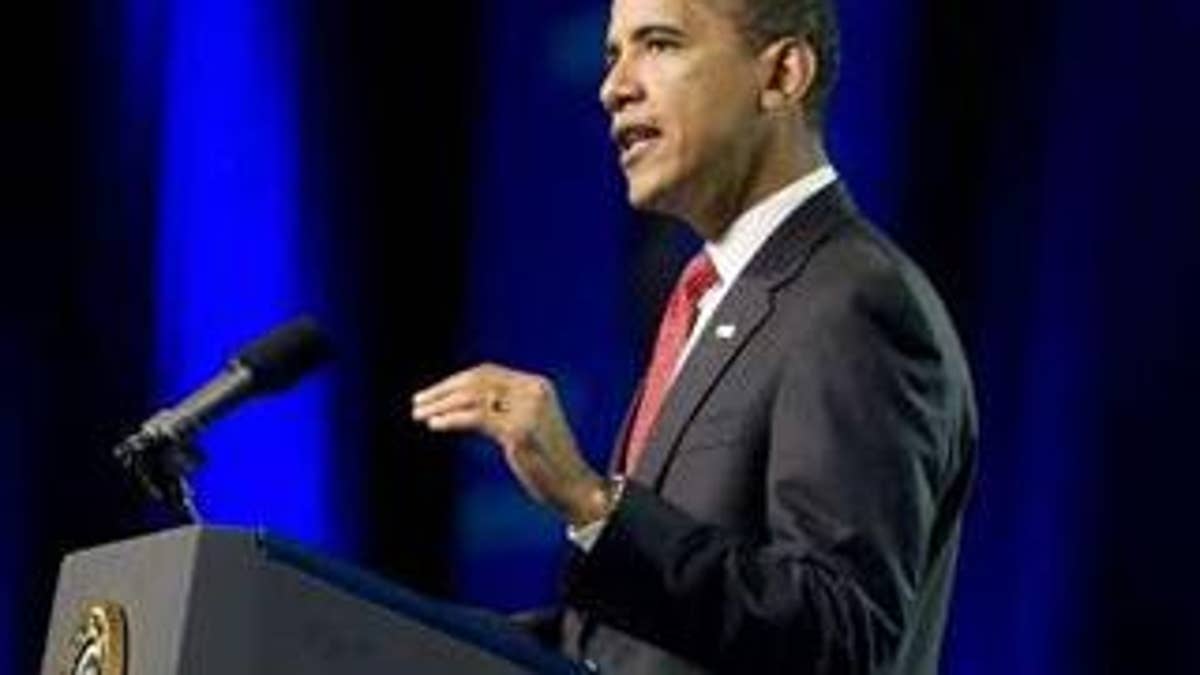
Despite President Obama's attempts to prepare the American people for rising casualties in Afghanistan, a new poll shows most Americans see the war as a wasted effort.
Congressional lawmakers say this is a sign the president needs to make the war in Afghanistan a front-burner issue in his public addresses and do a better job explaining the stakes to the American public.
Though the war in Afghanistan is a clear priority for the president, the push for health care reform has dominated his public appeals. And when he does address Afghanistan, some lawmakers say, Obama is telling more than explaining.
"You can't just say it's the good war and trust me, because actually his trust factor is dropping. He's going to have to build a case for it," said Rep. Buck McKeon, R-Calif., ranking Republican on the House Armed Services Committee.
The Washington Post-ABC News poll showed 51 percent of people say the war is not worth fighting. That sentiment was particularly high among members of the president's own party, with seven in 10 Democrats saying the war is not worth its costs.
Obama on Thursday again argued that U.S. forces need to commit themselves for the long haul, acknowledging that the influx of U.S. troops in the country has coincided with a sharp increase in casualties. July was the deadliest month of the war, with 76 coalition deaths reported, and August could eclipse that.
"We are going to keep on putting pressure on (the Taliban) and I know that it's at great cost," Obama said in a radio interview. "A lot more are falling in Afghanistan than in Iraq. ... We've got to make sure that we are really focused on finishing the job in Afghanistan, but it's going to take some time."
Yet much of the interview was taken up by discussion of health care reform, as Obama tried to explain where he stands on the so-called "public option" and settle fears about other components of the Democrats' plan.
"Everything now is health care," McKeon said, pushing issues like Afghanistan to the rhetorical sidelines.
He said Obama needs to explain that American credibility is on the line, since Afghan forces are depending on Western help to defeat the Taliban, and that Afghanistan's location, between Pakistan and Iran, is of utmost strategic importance.
House Armed Services Committee Chairman Ike Skelton, D-Mo., and McKeon both said, as a sign of U.S. commitment, Obama should be prepared to grant Gen. Stanley McChrystal whatever he requests following his strategic assessment -- which he's expected to deliver later in the month -- even if that means more troops beyond the additional 21,000 Obama already has committed.
"Whatever the general needs, give it to him," Skelton told FOXNews.com, saying Afghanistan has become the "forgotten war."
"Sadly, it's out of sight, out of mind," he said, when asked about the latest poll.
But Skelton said the American public needs to give McChrystal a chance to change course in the battlefield, remembering all along that the "genesis" of the Sept. 11 attacks was in the country where he's now engaged.
Rep. Chris Smith, R-N.J., a member of the House Committee on Foreign Affairs, said Obama needs to hammer that basic link, and do a better job emphasizing and defining the threat posed by terrorists.
"There's no fire in the belly about why this is important," Smith said.
Obama touched on the most fundamental reasons behind the war in his speech to the VFW national convention in Phoenix on Monday.
"This not a war of choice. This is a war of necessity," he said. "Those who attacked America on 9/11 are plotting to do so again. If left unchecked, the Taliban insurgency will mean an even larger safe haven from which Al Qaeda would plot to kill more Americans."
Robert Hathaway, director of the Asia Program at the Woodrow Wilson International Center for Scholars, said Americans are naturally convinced that Afghanistan is a worthy cause.
"They have not yet abandoned hope of getting those responsible for the attacks in New York and Washington," he said.
But Rep. Dana Rohrabacher, R-Calif., suggested the public is cringing out of a perception that Western forces are playing a primary, rather than a supportive, role to their Afghan counterparts.
"The casualties are going up. That means we're pursuing the wrong strategy," he said, questioning the logic behind increasing the American troop presence.
The Senate Foreign Relations Committee noted in a recent report that the increase does carry an inherent risk.
"The administration has raised the stakes by transforming the Afghan war from a limited intervention into a more ambitious and potentially risky counter-insurgency," the report said. "This transformation raises its own set of questions. How much can any amount of effort by the United States and its allies transform the politics and society of Afghanistan? Why is the United States becoming more deeply involved in Afghanistan nearly eight years after the invasion? Does the American public understand and support the sacrifices that will be required to finish the job?"
To the latter question, the latest poll indicates that such support is finite.
Though officials and lawmakers on Thursday celebrated the conducting of elections in the country, Taliban threats and intimidation appeared to diminish turnout.
The latest poll showed just 34 percent of people think the election will result in an effective government.
The poll of 1,001 adults was conducted Aug. 13-17. It had a margin of error of 3 points.




